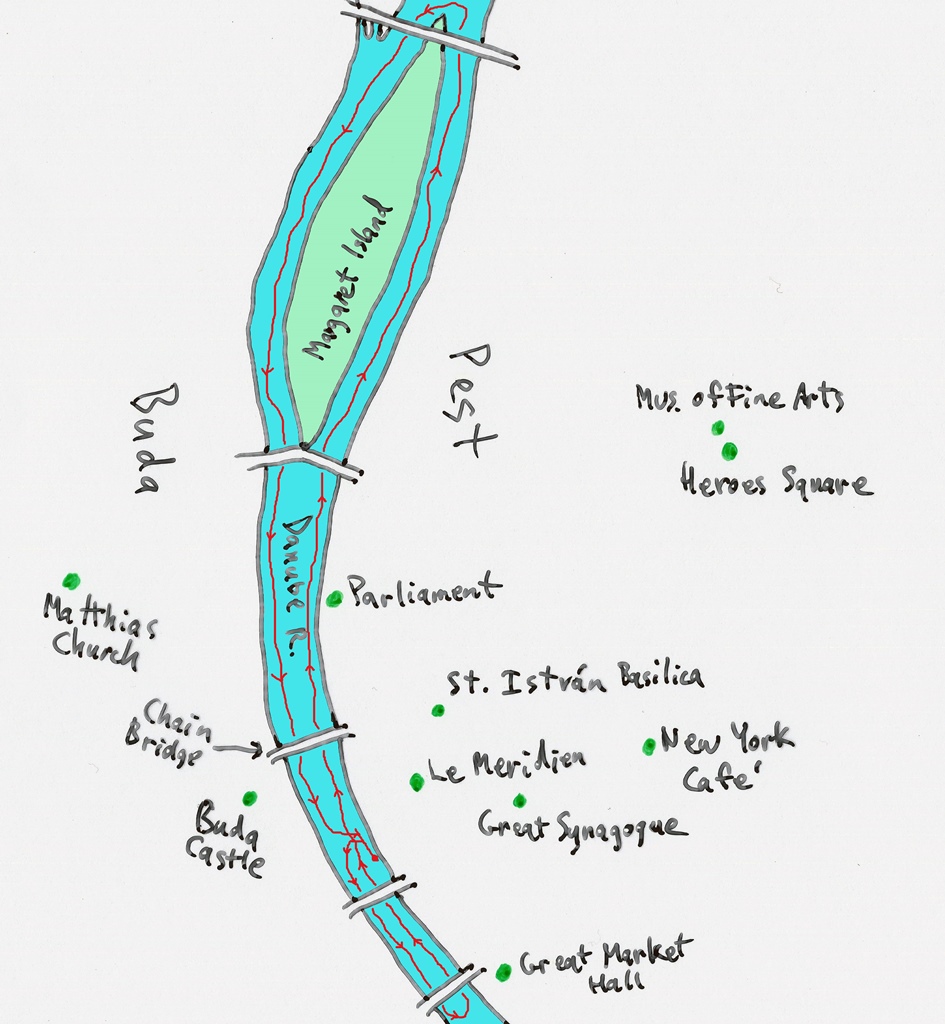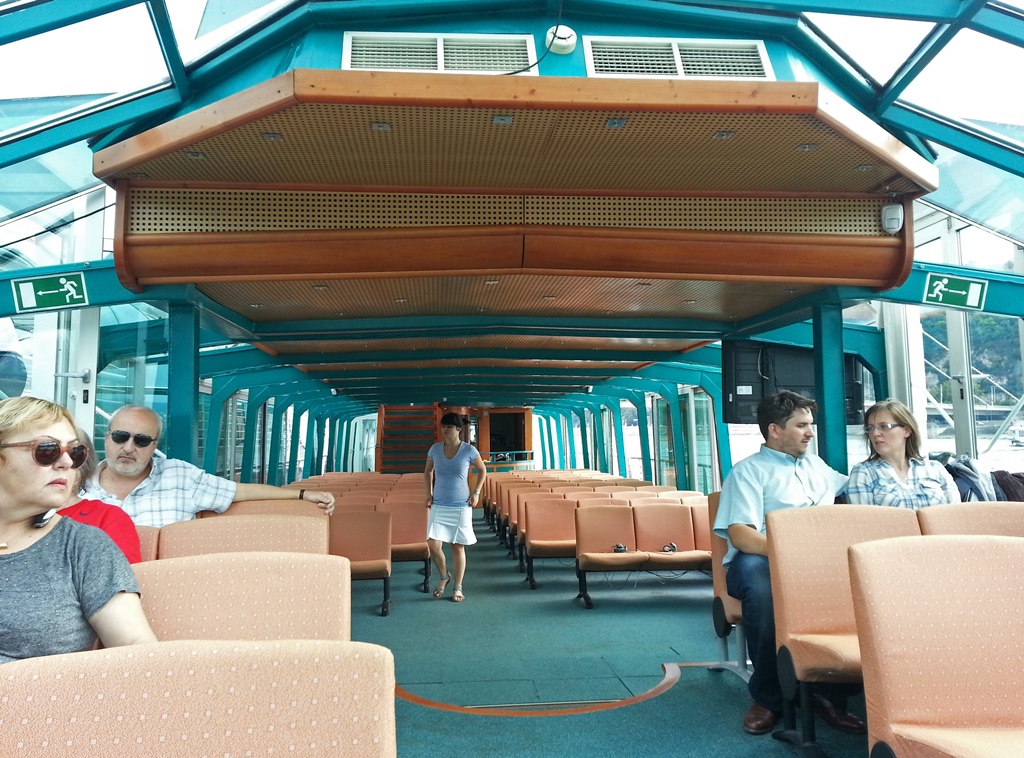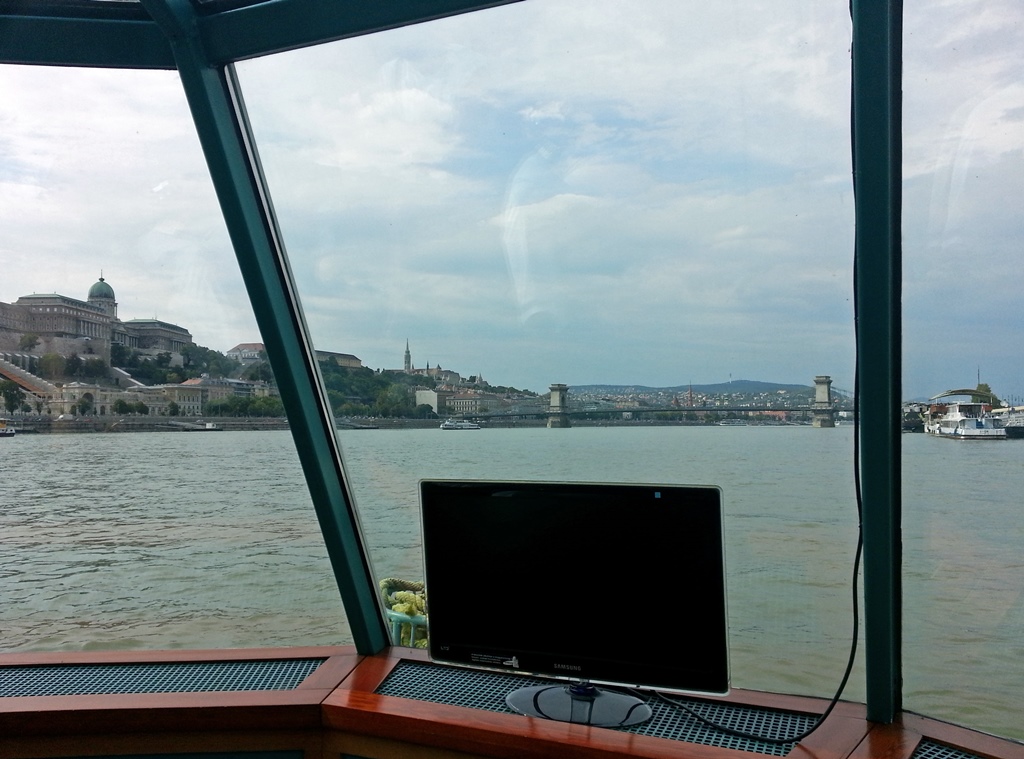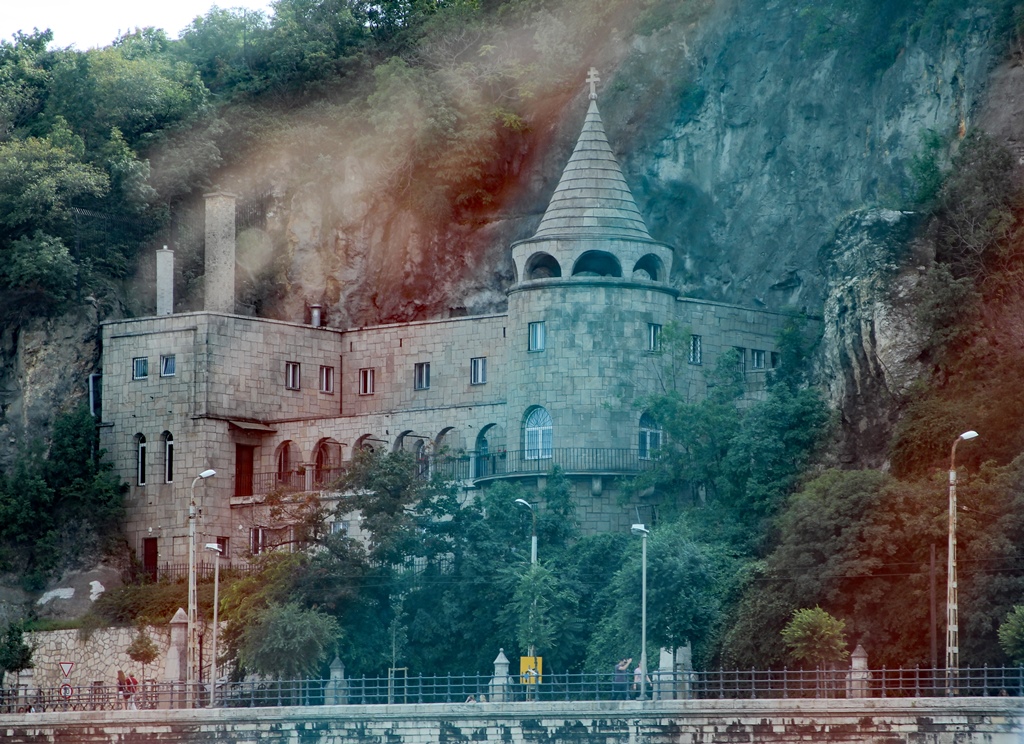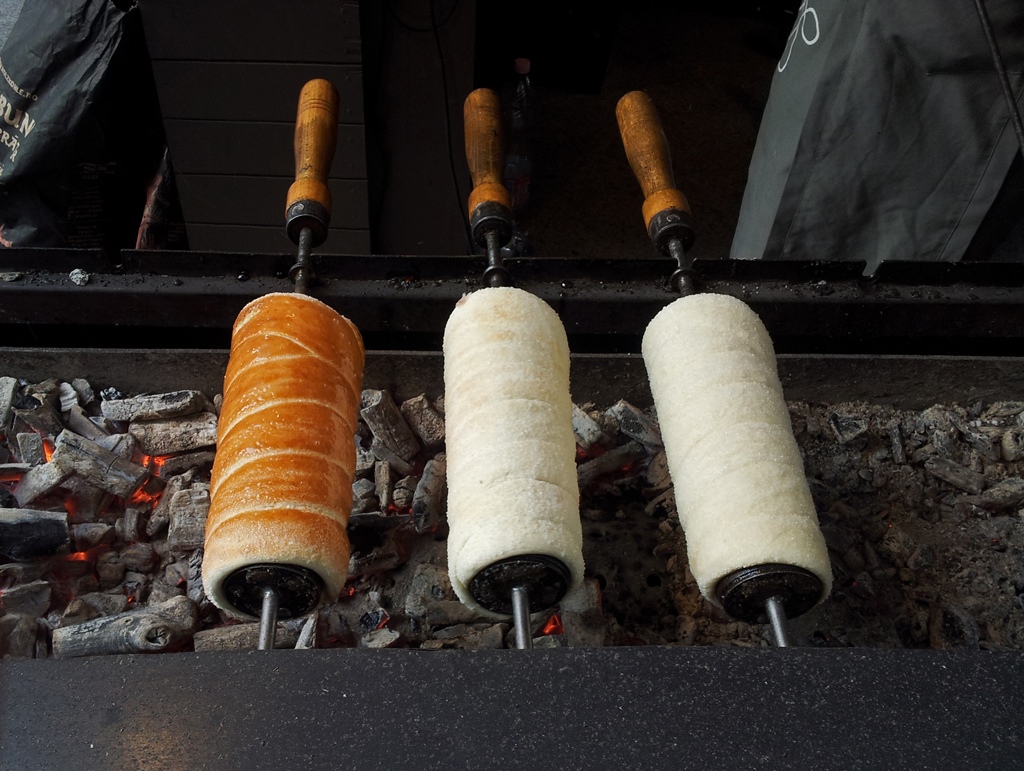Note: A YouTube companion video for this page can be found
here.
We didn't have a very clear idea of how one could join one of the cruises that give
tours of Budapest as seen from the Danube, but from the top of Castle Hill there
appeared to be a number of tour boats moored along the Pest side of the river. Though
downhill, this appeared to be pretty far away, so we looked for a bus that would get
us close. We boarded one that took us across the Chain Bridge, doing so by first going down
the back side of the hill and then going underneath it by way of the Buda Castle
Tunnel. After crossing the bridge, we got out at a stop on the Pest end and started
walking south along the river, looking for a boat tour ticket office. We eventually
found one, though we had to walk almost as far as the next bridge south, the Elisabeth
Bridge. The boat's tour route looked like it went downstream a couple of bridges and
then back upstream, circling all the way around Margaret Island before coming back to
its starting point. This suited us fine.
Tour Route
We bought ourselves tickets for the next tour and were directed to the boat. As luck
would have it, the boat was pretty empty, so we went for seats in the bow, from which
we would have a mostly unobstructed view in all directions. Each seat had a headphone
set with a language selector, which would supply the narration.
Inside Tour Boat
Eventually, after some more customers had boarded (though it was far from a full
boat), we left the shore, heading northward toward the Chain Bridge before turning
back south.
Buda Hill and Chain Bridge from Tour Boat
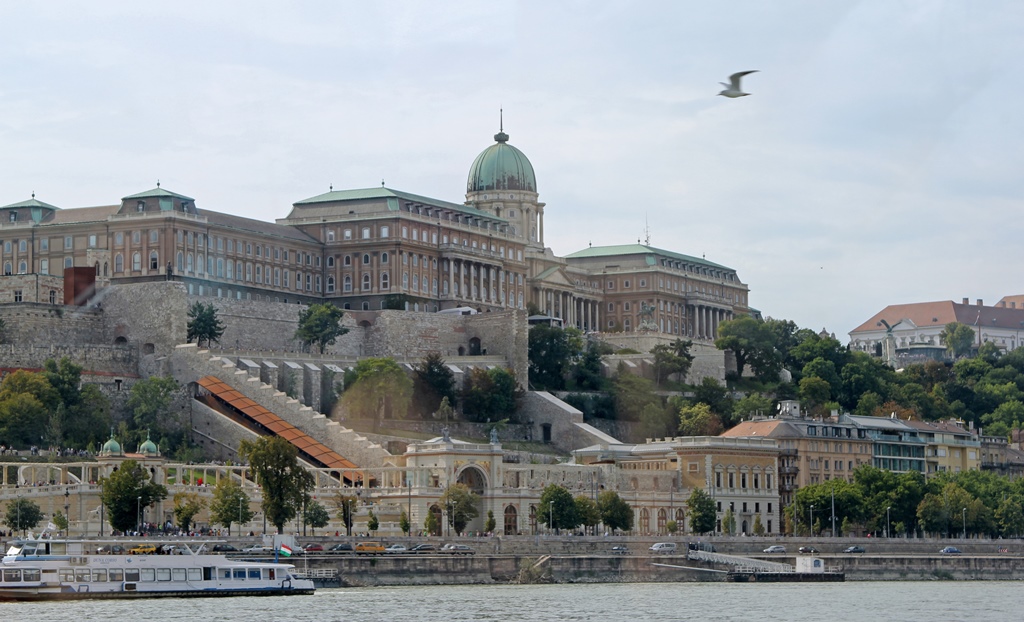
Buda Hill
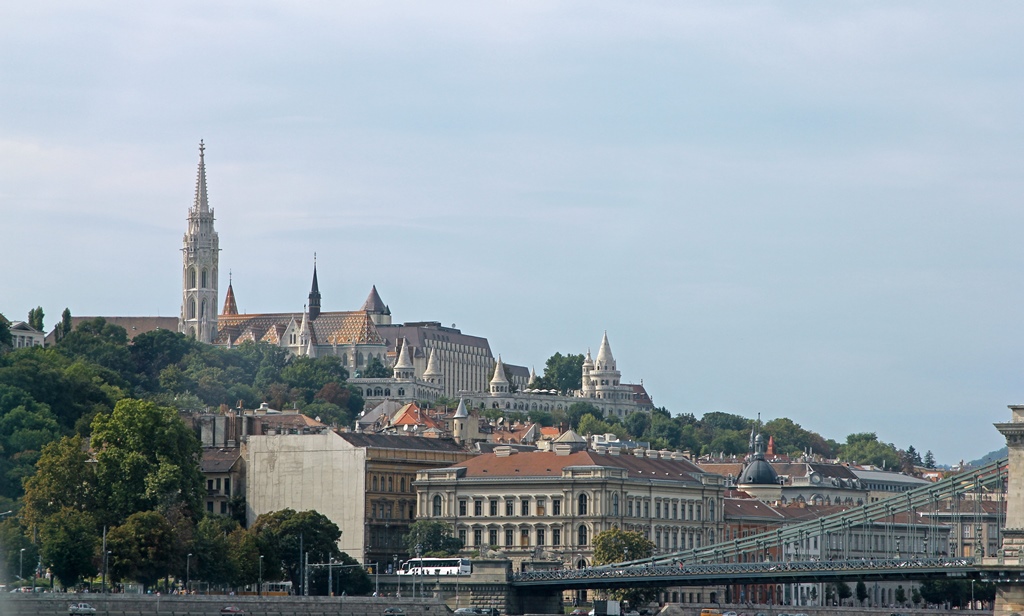
Matthias Church and Fisherman's Bastion
The first bridge south of the Chain Bridge is the Elisabeth Bridge, named for the
popular Empress Elisabeth (AKA "Sisi") of Austria-Hungary, of whom there is a statue
at the Buda end. This bridge is located at the narrowest section of the Danube in
Budapest, and is not the original bridge built at this location. The original was
built between 1897 and 1903, and was blown up by the Nazis in the waning days of
World War II. It was much more stylishly elaborate than the present bridge, which
was built between 1961 and 1964.
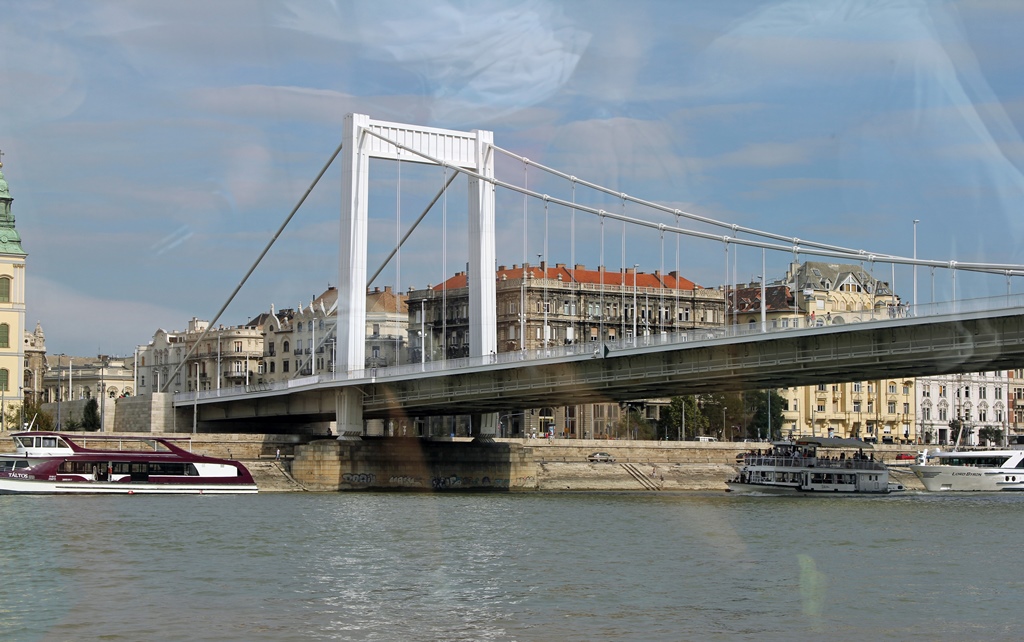
Elisabeth Bridge
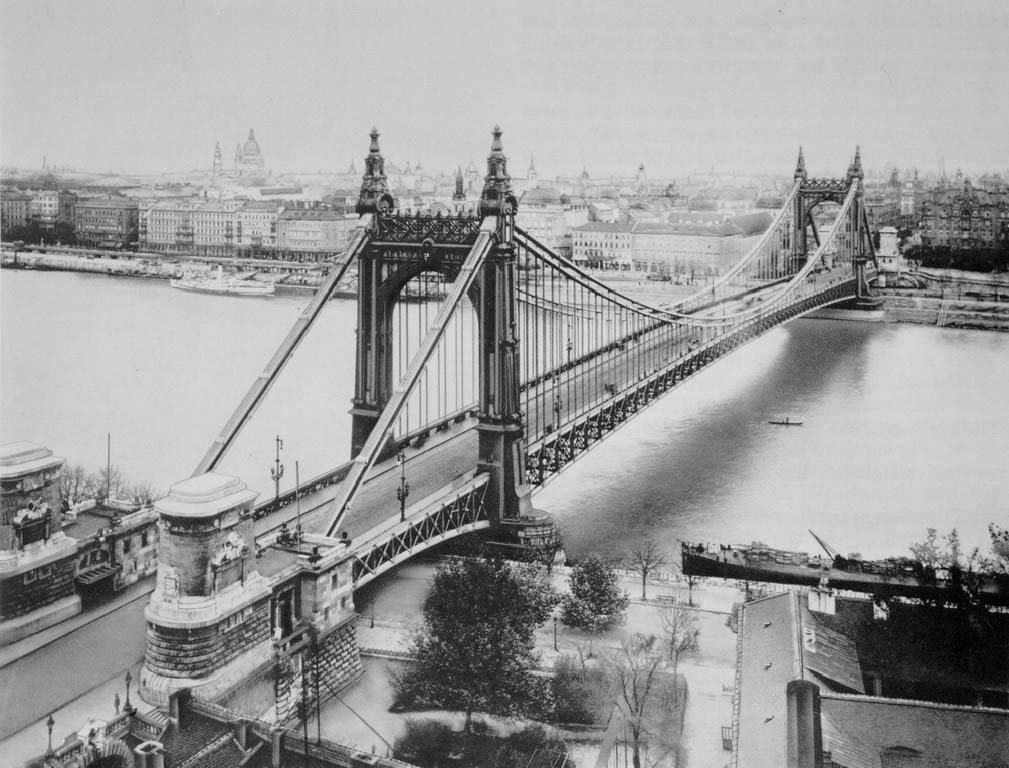
Elisabeth Bridge (1903)
The next bridge, visible in the distance as we passed under the Elisabeth Bridge, was
the Liberty Bridge, first completed in 1896 and then blown up and rebuilt (in the
original style) in 1945. As we floated toward it, we idly gazed at the buildings and
cruise ships moored along the Pest bank.

Liberty Bridge

Buildings on Pest Bank
Shortly before reaching the Liberty Bridge, we noticed a small castle-like construction
seemingly embedded in the side of a hill on the Buda side of the river. This was the
entrance to Gellért Hill Cave, which is a tourist attraction as well as a chapel used
for religious functions by the Pauline Order of monks. The cave was first used as a
chapel and monastery in the 1920's by the monks, who had been inspired by a similar
cave arrangement in Lourdes, France. During the war, the Nazis used it as a field
hospital, and in 1951 it was closed to religious uses by the Communist government. The
chapel was reopened in 1989, and was restored by 1992.
Gellért Hill Cave
After passing under the Liberty Bridge, we turned around to head back north.
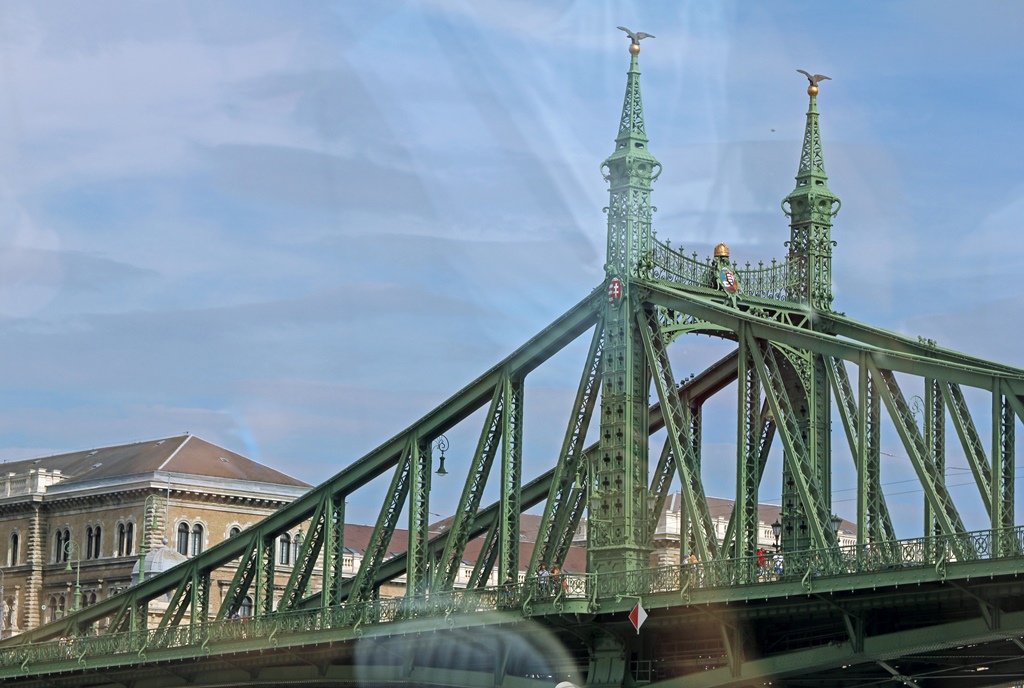
Liberty Bridge

U-Turn South of Liberty Bridge
On top of the Gellért Hill we could see Budapest's Liberty Statue (not to be confused
with the Statue of Liberty, which is bigger and located elsewhere), erected in 1947 with
an inscription of gratitude toward the liberating Soviet forces of 1945. It didn't take
long for the Hungarians to want to be liberated from their liberators, culminating in
a 1956 revolution which was ultimately crushed. The statue took on a different
meaning in 1989 as the Soviets finally departed, and the inscription was changed to
memorialize those who lost their lives struggling for the "independence, freedom and
prosperity of Hungary".
Liberty Statue
We passed back under the Liberty Bridge, and eventually under the Elisabeth Bridge.
Approaching Elisabeth Bridge
Continuing north, we passed the point at which the tour started, eventually crossing
under the Chain Bridge as we looked up at Buda Hill.

Tour Boat with Buda Hill
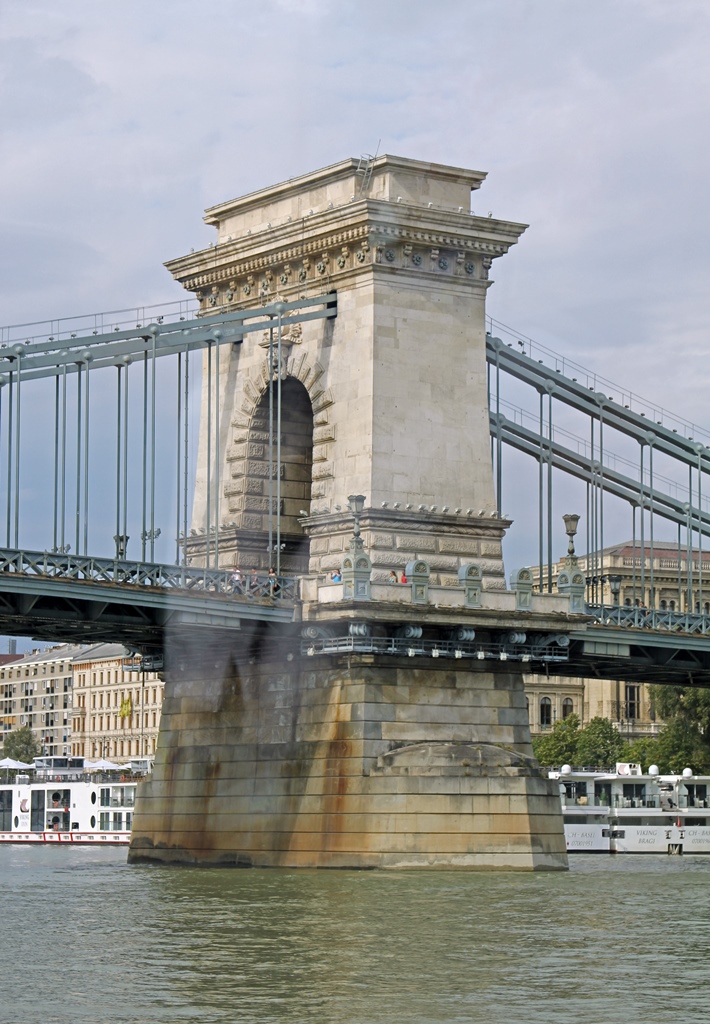
Approaching Chain Bridge
Not far upstream of the Chain Bridge, we passed by the Hungarian Parliament Building,
a massive neo-gothic edifice which could not be ignored. This building will be discussed
at length in a future page.

Parliament Building and Buda Churches
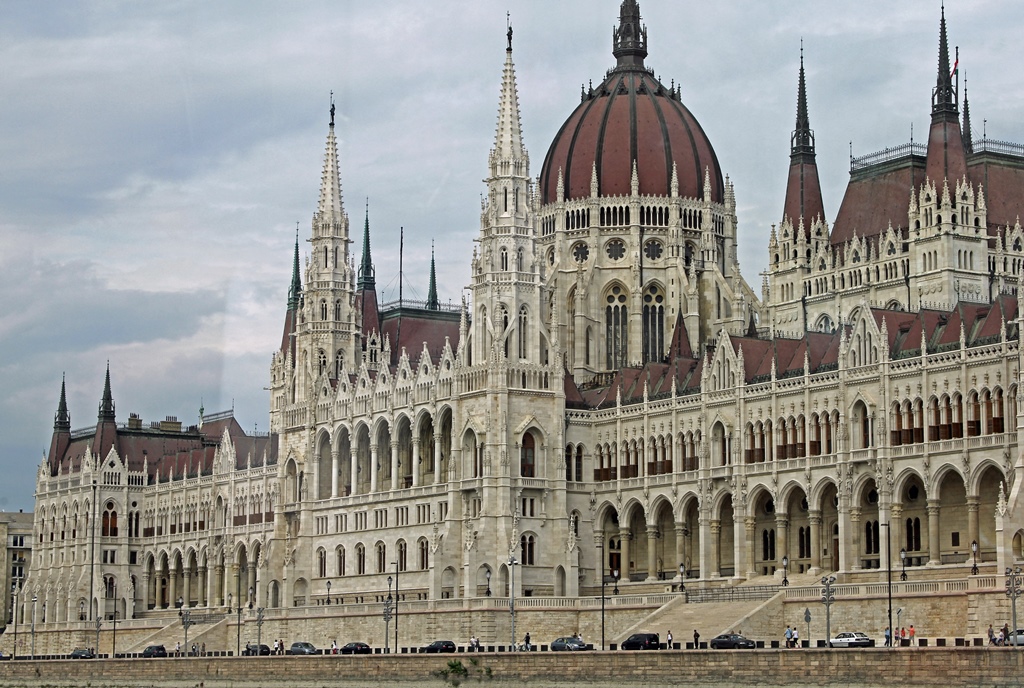
Parliament Building
Across the river from the Parliament Building were a couple of distinctive churches, a
Calvinist one and a Catholic one (the Church of Saint Anne).
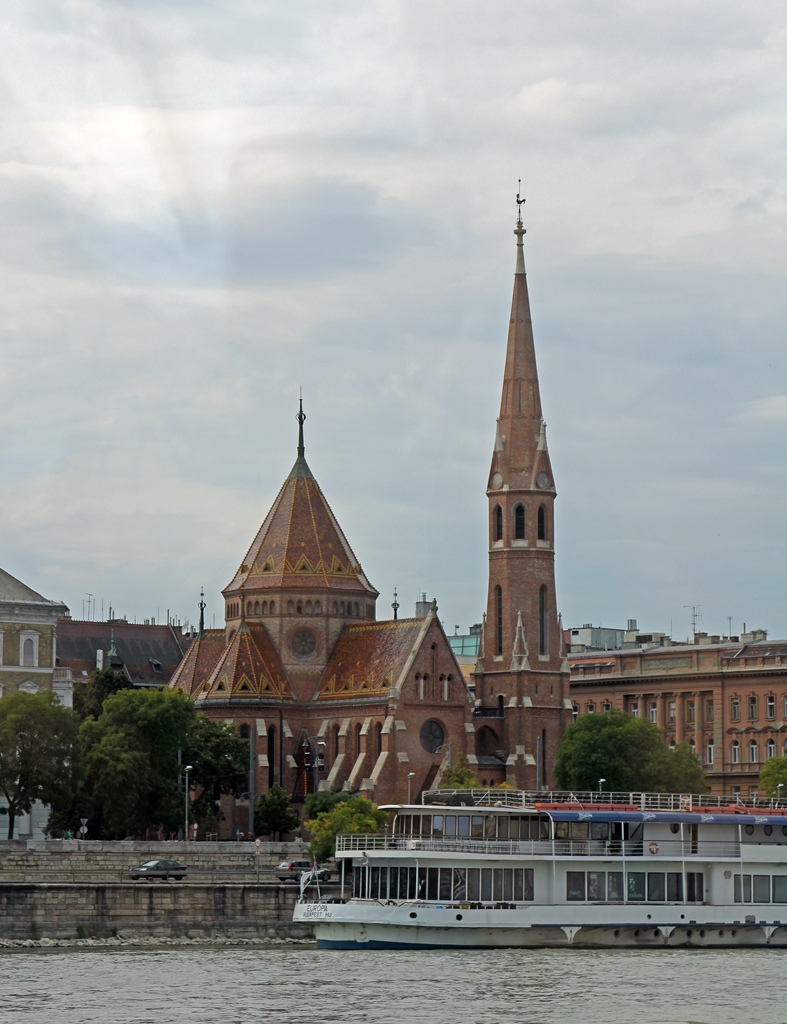
Calvinist Church

Church of Saint Anne
Beyond the Parliament Building the Danube is crossed by another bridge, called the
Margaret Bridge, which connects both banks with a large island called Margaret Island
(named after the Hungarian Saint Margaret) and with each other. The bridge was first
built between 1872 and 1876, but had to be largely rebuilt after its 1944-45 destruction
by Germans. It was renovated between 2009 and 2011 due to poor condition. It now
accommodates foot traffic, vehicular traffic and rail traffic.

Margaret Bridge
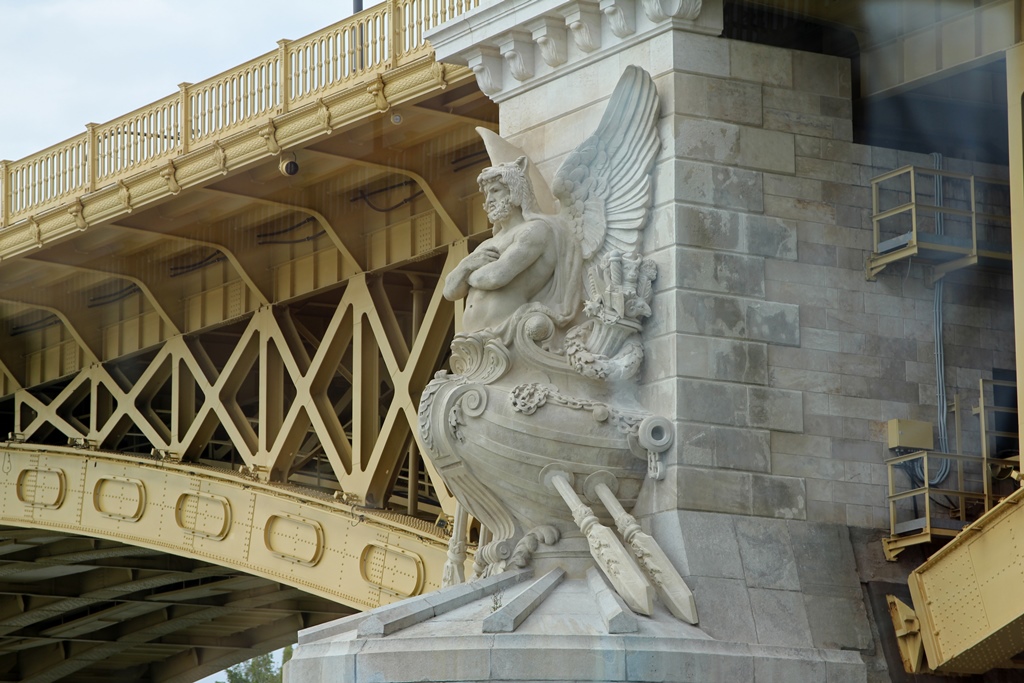
Margaret Bridge Detail
Margaret Island is a 1.6-mile-long island in the middle of the Danube, located north
of the Parliament Building. It's used for recreation, with substantial green space,
fountains, a small zoo, places for summer musical performances and two hotels. The
buildings which line the banks of the Danube give way to trees by the time the north
end of Margaret Island is reached.
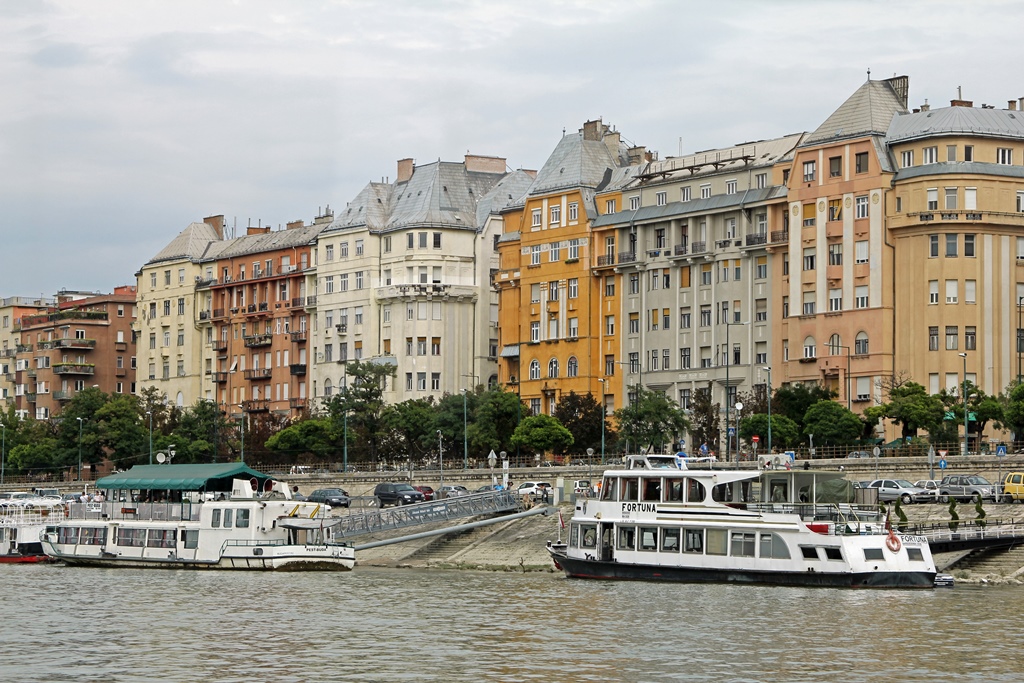
Buildings Across from Island

Passing Margaret Island
After reaching the end of the island along the Pest-side channel, we rounded the
island and returned using the Buda-side channel. Passing under the Margaret Bridge
gave us a fine view of the Parliament Building.
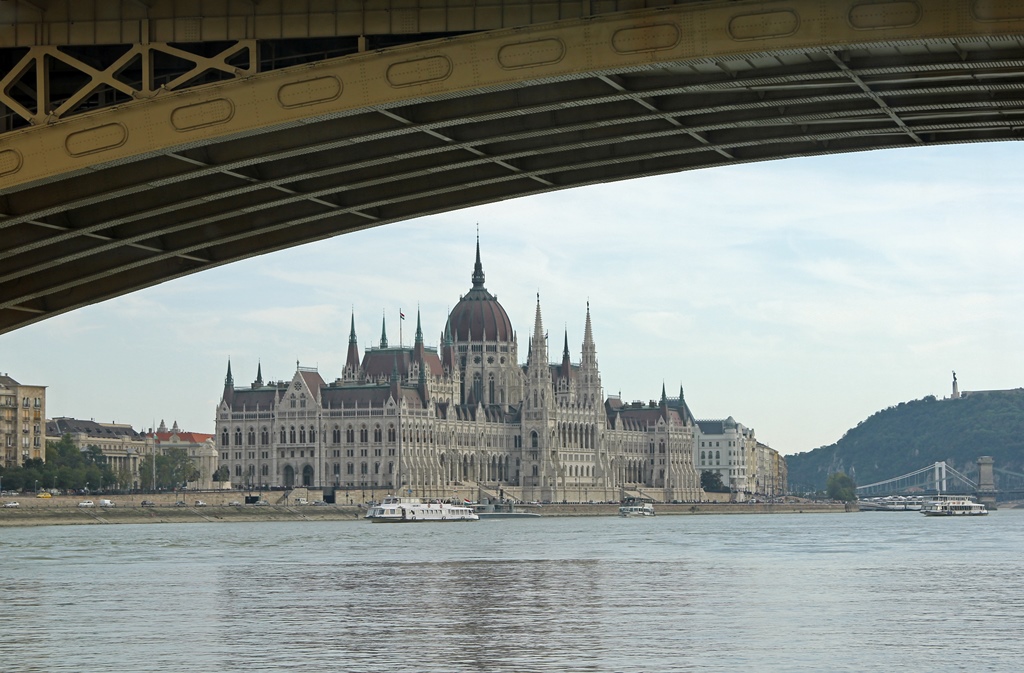
Parliament Building Under Margaret Bridge
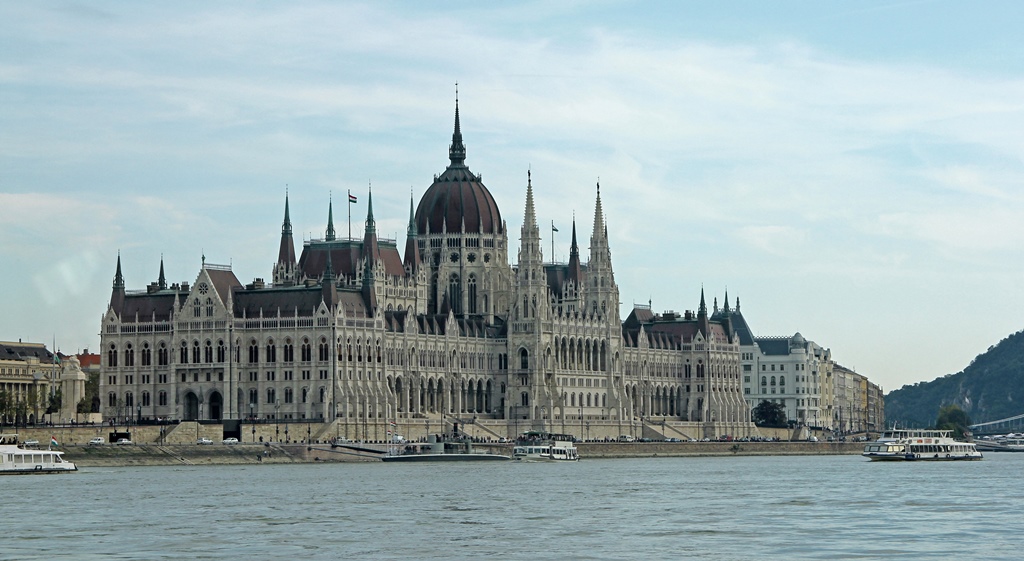
Parliament Building
We eventually got back to where the tour had started and disembarked. Having
had enough activity for one day, we headed back toward the hotel. On the way we
passed through an area of street vendors, one of whom was making cylindrical
pastries advertised as being originated in Transylvania. We bought one and took
it back to the hotel room. It was tasty and did not turn us into vampires. My
stomach, however, had some difficulties with it, though Nella's was fine.
Transylvanian Street Pastry
Later, we found a light dinner and rested up for the next day's planned exertions,
which would start with a visit to Budapest's Great Synagogue.

